In lockstep with corporate orders, city councilors won’t reveal amount of water they’ve agreed to let digital behemoth take from local watershed
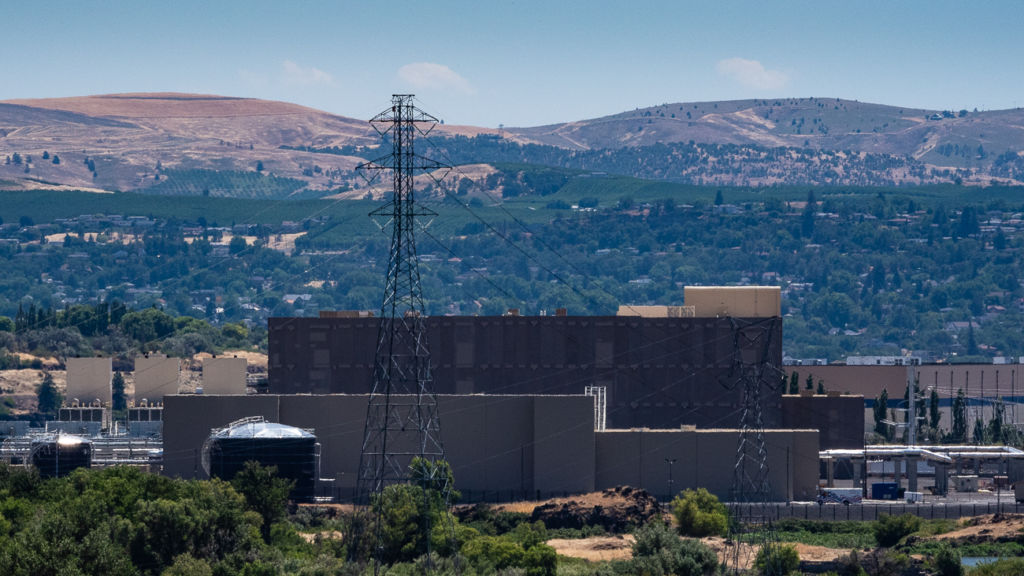
Black box: Google already operates secretive data centers in The Dalles. Now it’s demanding more compliance. And getting it. Photo: Jurgenhessphotography.com
By Mike Rogoway, The Oregonian/OregonLive. November 10, 2021. The City Council in The Dalles, Ore., voted unanimously Monday night, 5-0, to approve a $28.5 million deal with Google to provide more water for the tech company to cool two new data centers there.
The issue has trained national attention on the small city, which sits along the Columbia River about 80 miles east of Portland, and the broader question of water rights in the drought-stricken West.
Google and The Dalles have refused to say just how much water the company’s three existing data centers use and would not say how much more it wants for the two new ones, though the city asserts it would be less than the new water capacity created by Monday’s deal.
[perfectpullquote align=”full” bordertop=”false” cite=”” link=”” color=”” class=”” size=””]”The people that do need to know (the details) do know them.” —City councilor Dan Richardson[/perfectpullquote]
While Google’s water demands sparked heated denunciation on social media pages in The Dalles, and some councilors reported receiving angry and profane phone calls and emails, no organized opposition emerged and the council lined up behind the deal.
“There’s a net benefit to the city in proceeding with these improvements,” said Dave Anderson, the city’s public works director. Under any conceivable scenario, he said, The Dalles will have more water available through the deal with Google than it would have otherwise.
MORE: Google’s secret operation unwrapped
Monday’s vote was the third of three key approvals Google said it needed before expanding.
Last month, the city and Wasco County each voted to approve a package of tax breaks for Google.
The new tax deal, while far less generous than two prior agreements with the tech company, would still save Google tens or hundreds of millions of dollars if it builds both of the new data centers.
Google’s new tax deal
Duration: 15-year tax exemption for each new data center.
Savings: Half off the property taxes associated with the first new data center, and 40% off a second. However, Google would also pay $3 million, up-front, when it begins construction of each new project. On a $600 million data center, The Dalles expects Google would by $3.3 million annually.
By comparison: Google’s first three deals had up-front payments of $280,000, $1.2 million and $1.7 million, respectively. It also paid $800,000 annually afterward in the first two deals, and at least $1 million annually in the third deal.
Additionally: Google would transfer 35 acres of property to Wasco County and give The Dalles and the county an option to buy the new data centers’ land from the company if it ceases operations.
Google did not say Monday whether it will definitely proceed with its expansion. It issued a statement immediately after the vote saying it is “proud to expand our commitment to the region.”
Monday’s deal obliges the city to provide an undisclosed volume of water for Google’s expansion.
In exchange, the tech company will provide some of the water rights associated with its industrial land, donate 35 acres to Wasco County and pay nearly the entire cost of the $28.5 million water system upgrade.
Google bankrolls Dalles’ legal fight against public transparency
Residents in The Dalles and the surrounding rural and agricultural areas have raised repeated questions about how climate change will affect water supply in the region and whether Google’s agreement could reduce the water available to them.
“There’s a lack of information about projections should the rainfall and snowfall fail to come and the aquifer not be recharged in the wetter winter months,” testified Dawn Rasmussen, who lives in a rural area outside the city limits. Rasmussen, who led efforts to rally opposition to Google’s deal, said her own well water has been in steady decline and she fears the changing climate will permanently erode the water available to the region.
“What happens if we are in an overall pattern where rainfall is decreasing, decreasing, decreasing?” Rasmussen asked at Monday’s online meeting. “Who’s going to win that water war?”
MORE: Less snow is the new norm. That’s trouble for farmers
City officials insisted that their studies show that even if the overall water supply declines, the city will have more available under its deal with Google than if it made no deal and the company kept all its water rights.
“Residents will not be without water as a result of this proposed agreement,” said Anderson, the public works director.

What’s the story? Ex-newspaper man and current city councilor Dan Richardson isn’t saying much. Photo: City of The Dalles
Monday’s deal includes a provision that keeps Google’s future water use confidential. The city said that conforms to prior agreements, which assert Google’s water needs constitute a “trade secret” that would put the company at a competitive disadvantage if released publicly.
Last month, The Dalles sued The Oregonian/OregonLive to prevent the release of Google’s water use after the Wasco County district attorney ruled in favor of the news organization’s request for the information under the state’s public records law.
The Dalles’ attorney, Jonathan Kara, said Monday night the city believes it was obliged to sue under a prior agreement with Google, which commits The Dalles to working with the company to fight public records requests. Kara said that deal makes Google “contractually obligated” to pick up the costs of the litigation.
MORE: How cryptocurrency mining operations in Washington wreak environmental havoc
Dalles city councilor Dan Richardson acknowledged Monday that it “would put a lot of our residents’ minds at ease” if Google voluntarily disclosed its water use and said how much more water it wants. But he said members of the City Council are the ones charged with voting on the deal, and he said they know the details.
“The people that do need to know them do know them,” Richardson said, “and feel pretty good about them.”
Columbia Insight is publishing this story as part of the AP StoryShare program, which allows newsrooms and publishing partners to republish each other’s stories and photos.


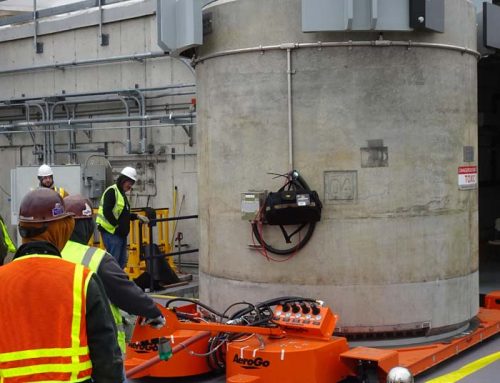
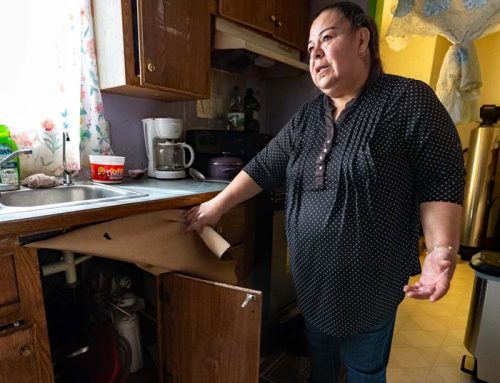
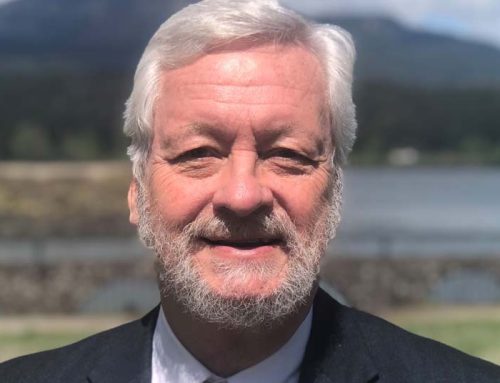

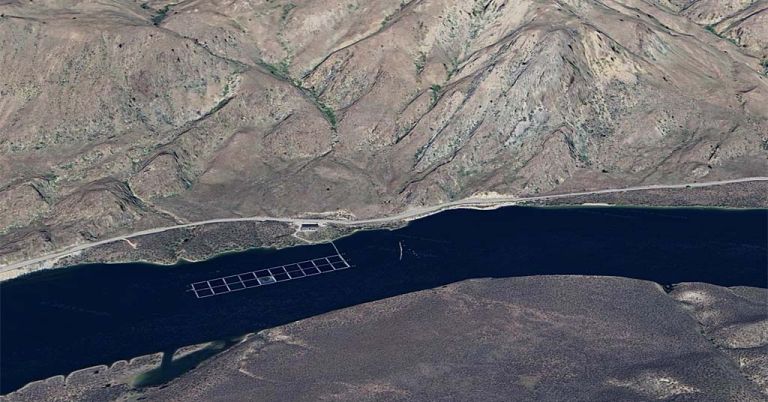

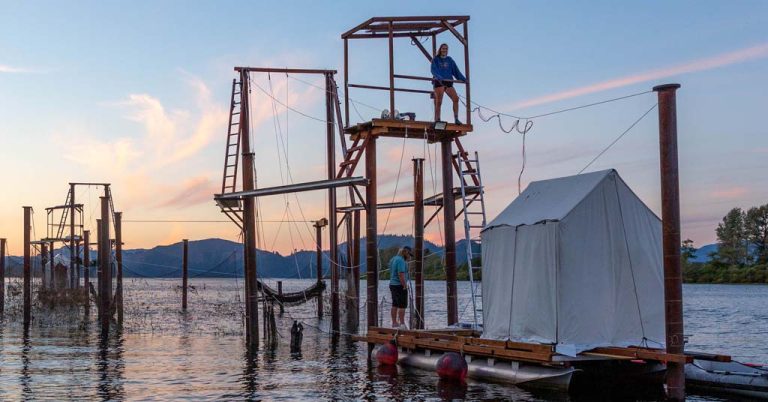



What none of the reporting to date has touched on is that Google and The Dalles are drying up the Dog River, tributary to the East Fork of the Hood River – an area with five species of salmon and steelhead listed under the Endangered Species Act – through a pipeline expansion that will approximately double The Dalles diversion of water from the Dog River. Some of that Dog River water will be put into the aquifer near The Dalles to supply Google.
Google and The Dalles tout as evidence of their environmental and water bona fides that this Aquifer Storage and Recovery project is required by law to leave 10% of the water put in the aquifer in the aquifer, but it’s a shell game to dry up a stream to “recover” an aquifer elsewhere.
Fish and wildlife, including imperiled species under the Endangered Species Act, certainly will be without water as the result of this agreement.